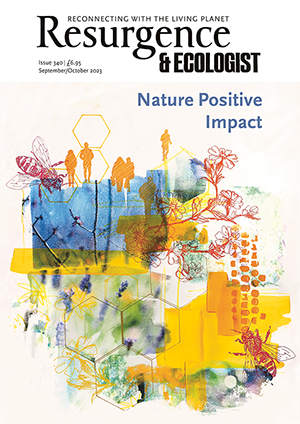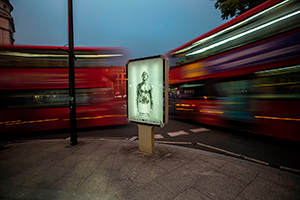Living just 25 metres from the congested South Circular Road in Lewisham, South East London, Ella Kissi-Debrah was seven years old when she was diagnosed with asthma. During the course of two years, she was admitted to hospital over 30 times until she died following an asthma attack in early 2013.
Seven years later, as a result of her mother Rosamund’s tenacious campaign for justice, Ella became the first person in the UK to have air pollution listed as a cause of death.
This is the story that kicks off mayor of London Sadiq Khan’s book Breathe – which he calls a guide to winning support for action on climate change. Ella’s story is twinned with Khan’s own diagnosis of asthma and his conversion to making tackling toxic air central to his programme as mayor.
Each of the seven main chapters explores a barrier to action: apathy, cynicism, cost, and so on. But having set up this structure, Khan immediately abandons it, promising an opening chapter on fatalism in politics but instead giving a linear account of his career, leading up to his election as mayor of London in 2016.
The rest of the chapters adhere to their topics a little bit more faithfully, but are all told through the narrow lens of Khan’s own experience in office. The result is a book that is neither a cerebral exploration of the barriers to climate action in politics, nor a proper political memoir.
The best political memoirs come long after a politician has left office – looking back at their legacy with clarity and honesty. Published less than a year before Khan seeks reelection for a third term, Breathe often reads like a campaign pitch: a self-aggrandising, partial account of his record, coupled with a reluctance to truly judge his own shortcomings against the challenges he sets out.
One example is the five pages he devotes to an awkward justification for the Silvertown Tunnel, a new four-lane artery of traffic currently under construction in Greenwich, loathed by air pollution campaigners and environmentalists alike. Local campaigners have gone to some effort to refute the claims of this passage line by line. It is difficult to imagine Khan writing this in twenty years’ time as part of an honest appraisal of his legacy.
There is also a notable omission from Khan’s chapter headings: good old-fashioned denial. Khan argues that the era of climate denial is over, and that the people who formerly tried to cast doubt on the science have now accepted the consensus and have moved on to delaying climate action. While I broadly recognise the arc he is describing, I worry that opponents of climate action have regressed more than he gives credit.
Khan ought to have been well placed to notice this. The 2021 London mayoral election marked a turning point of sorts for public discourse, with far-right figures and conspiracy theorists clogging up the ballot paper and lurking outside City Hall on election night.
Covid saw a renaissance in the denial of established scientific reality, with anti-vaxxers and the like. A few short years later, traffic-calming measures are now decried as a globalist conspiracy of control orchestrated by the World Economic Forum. At the book launch for Breathe, a man stood up and shouted that it was “a lie” that Ella died from air pollution. Her mother Rosamund was among the audience.
At the time of writing, Khan is finding out how ugly the discourse around climate can get, as he seeks to expand the area of London in which a charge is levied on the dirtiest vehicles. Some Outer London councils are banding together to challenge the policy in the high court, while outriders seek to discredit independent data evidencing the success of the existing Ultra Low Emission Zone (ULEZ), all welcomed by the burgeoning ecosystem of right-wing outlets like GB News.
But the mayor of London is right to have confidence in his conviction. If Ken Livingstone’s original congestion charge in central London had been put to a referendum the day before it was brought in, it would have lost. Just a year or so later, a plurality of people supported the scheme. This is generally the story of action to cut traffic: opposition is highest just before implementation, and support grows once the benefits start being felt. Before long, few people want to go back to how things were.
At the moment, a noisy minority of people are polarising and distorting the debate around efforts to tackle traffic and toxic air, while the majority of us are generally supportive, if quietly, of calmer roads. Khan must face down his opposition and show the leadership he is at pains to demonstrate in Breathe. The lungs of Londoners depend on it.
Breathe: Tackling the Climate Emergency by Sadiq Khan. Hutchinson Heinemann, 2023. ISBN: 9781529152784.








